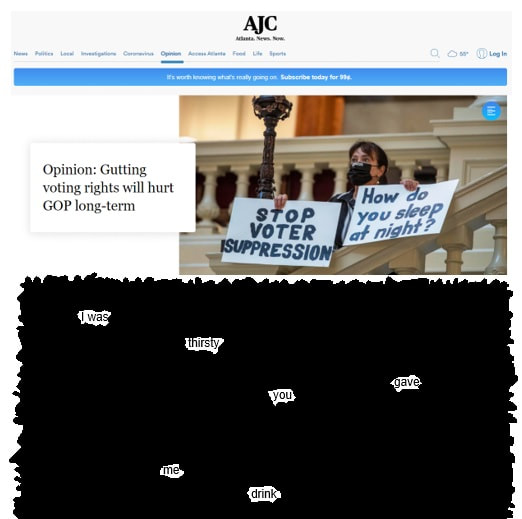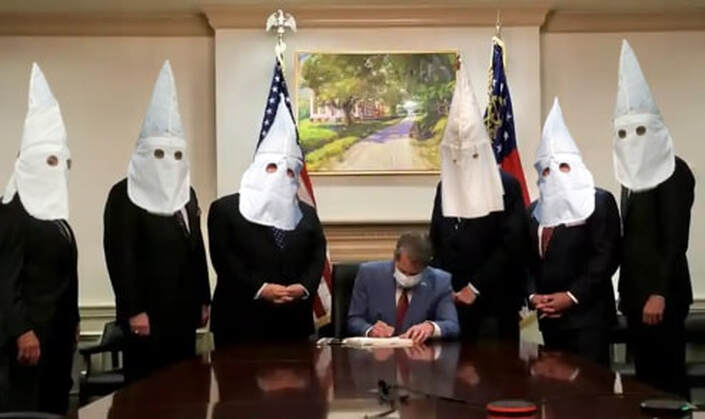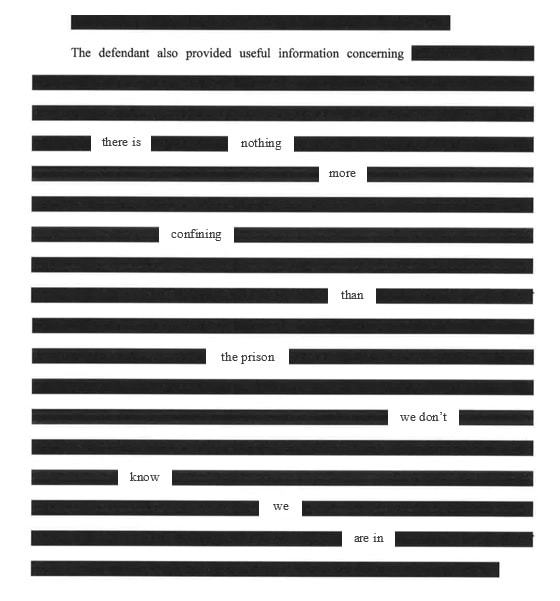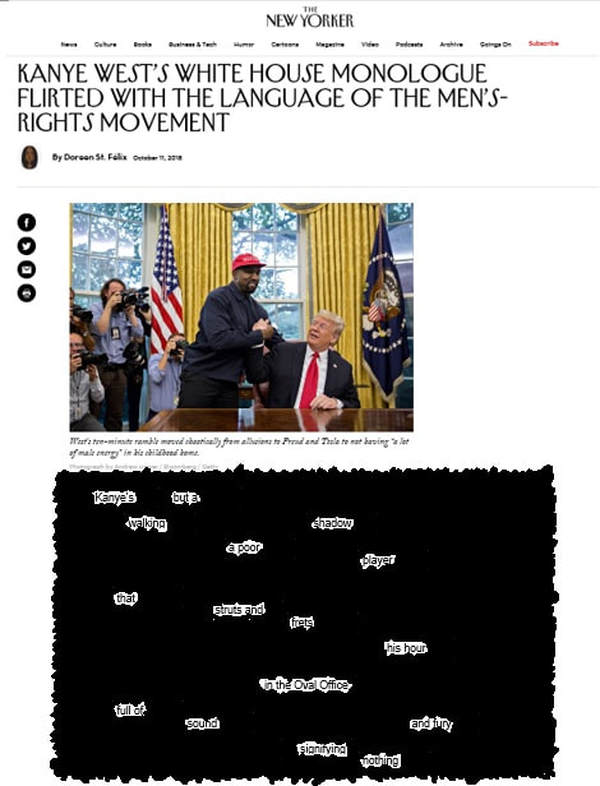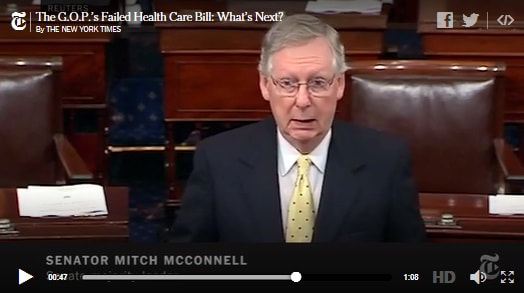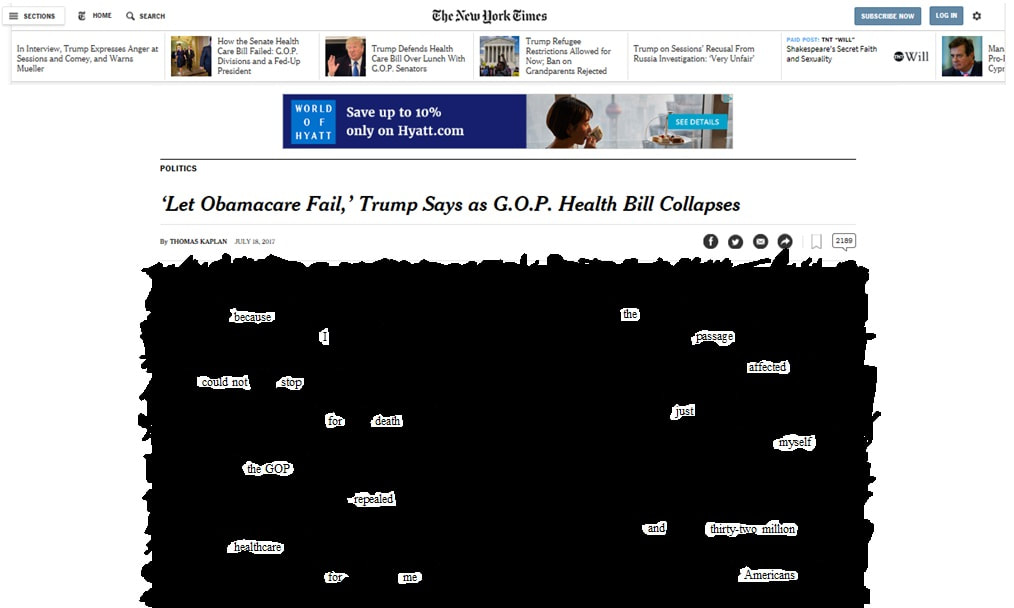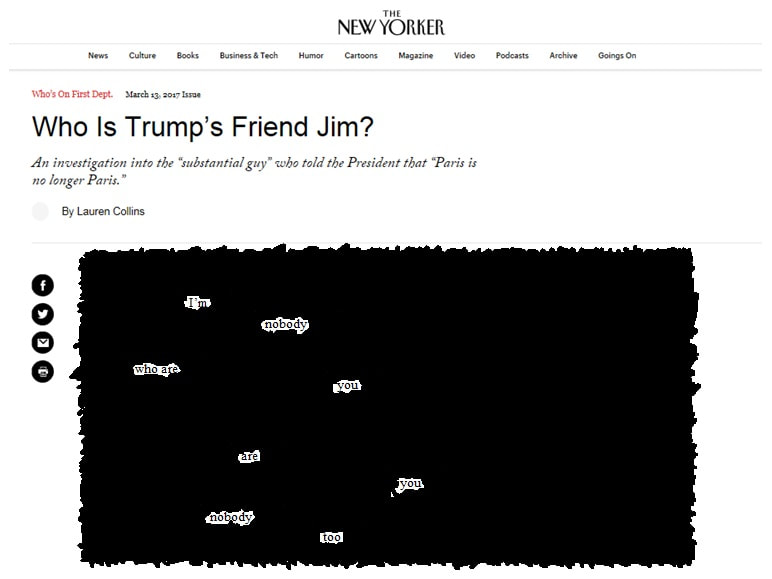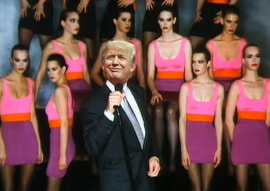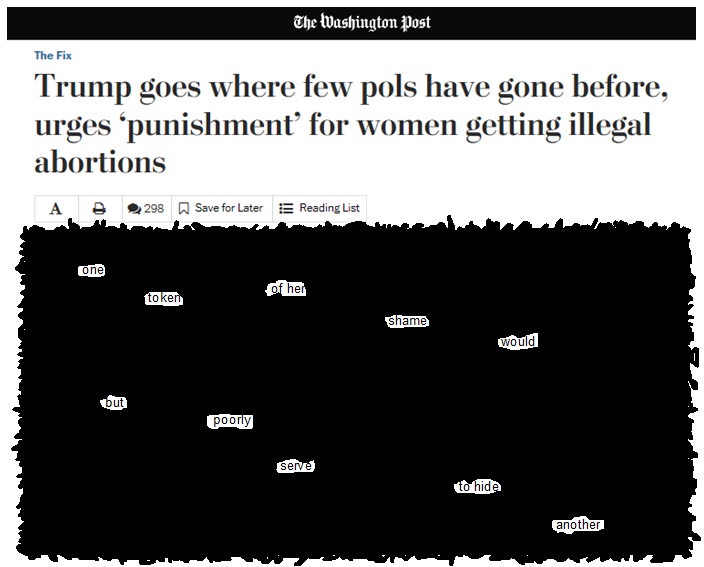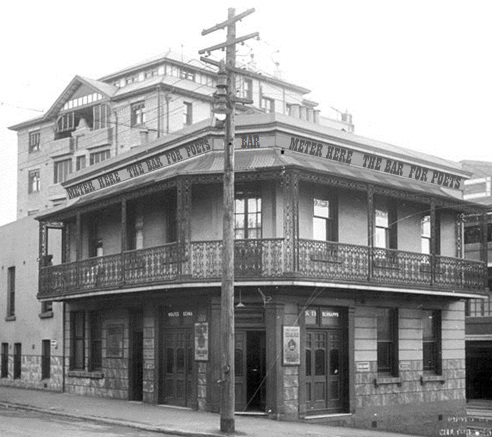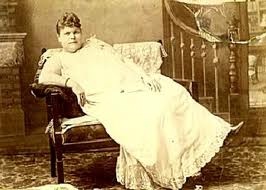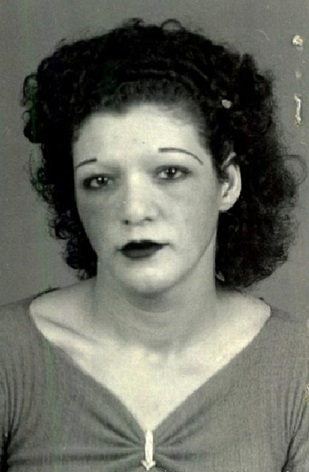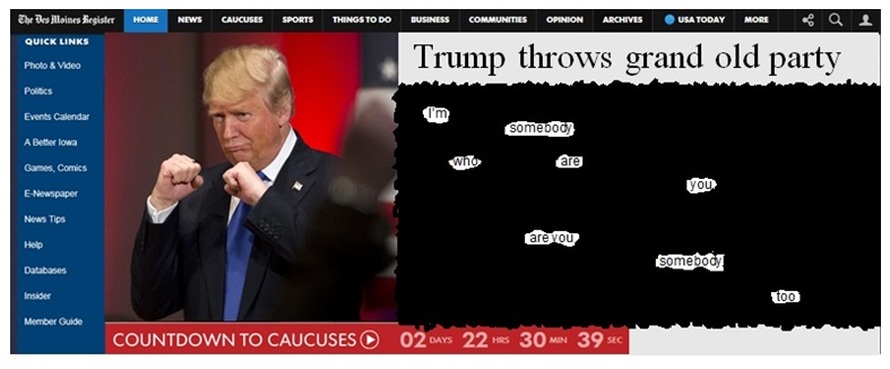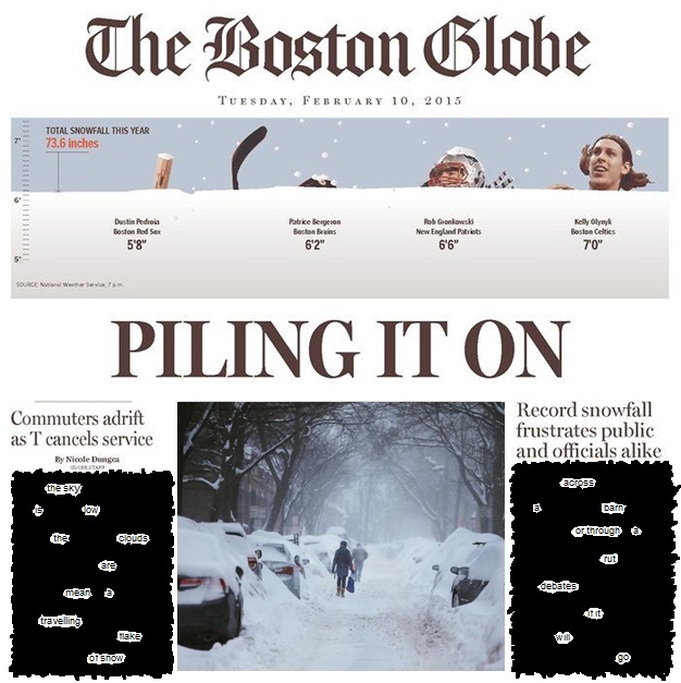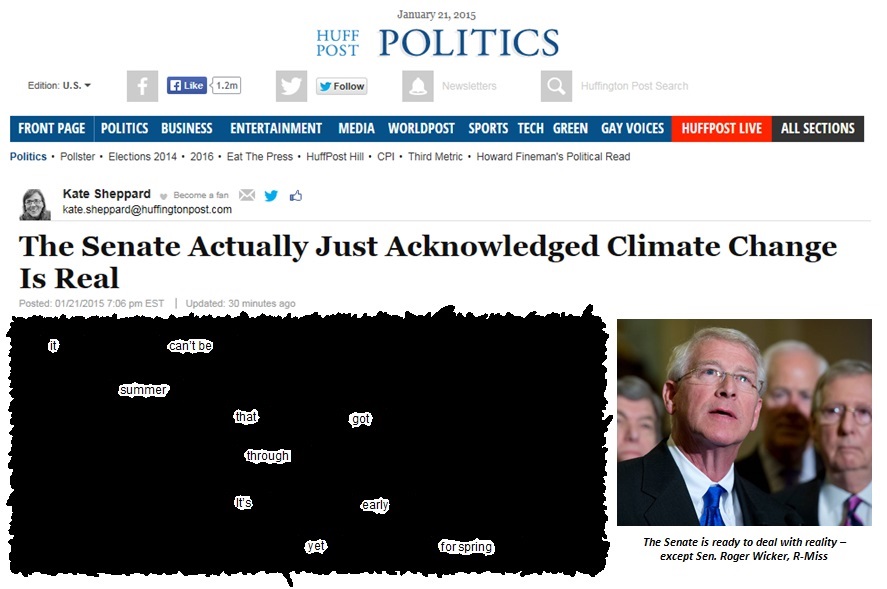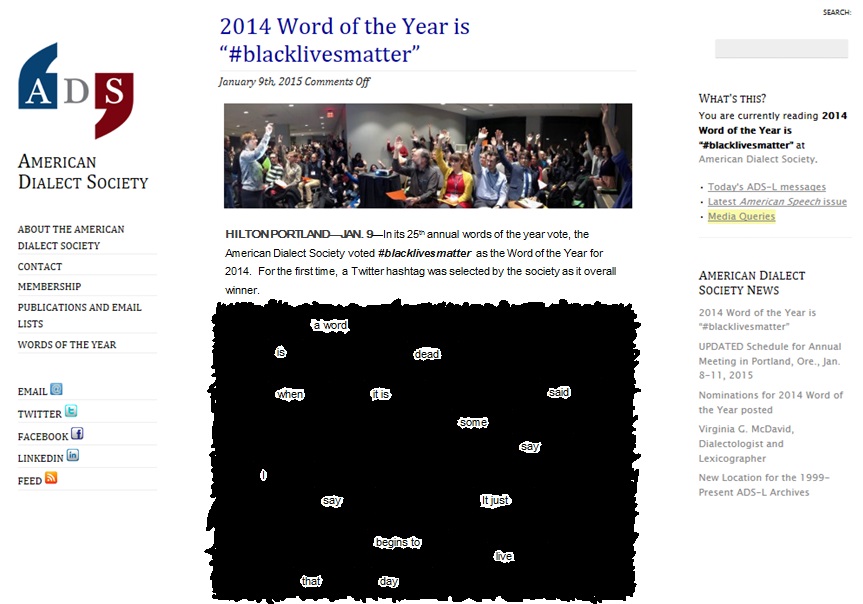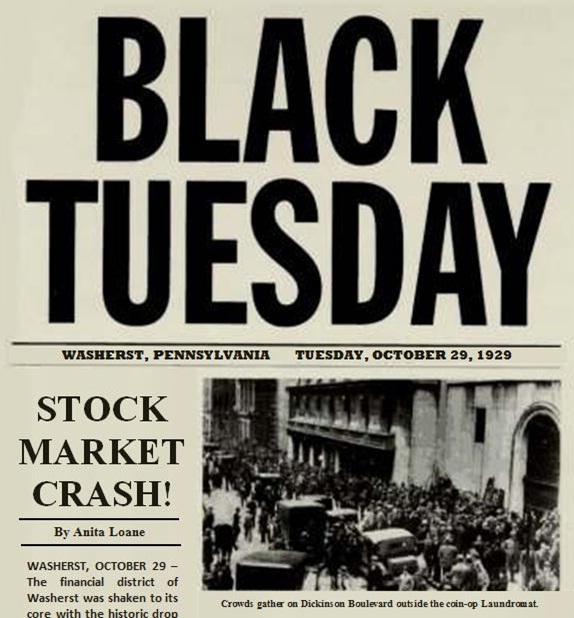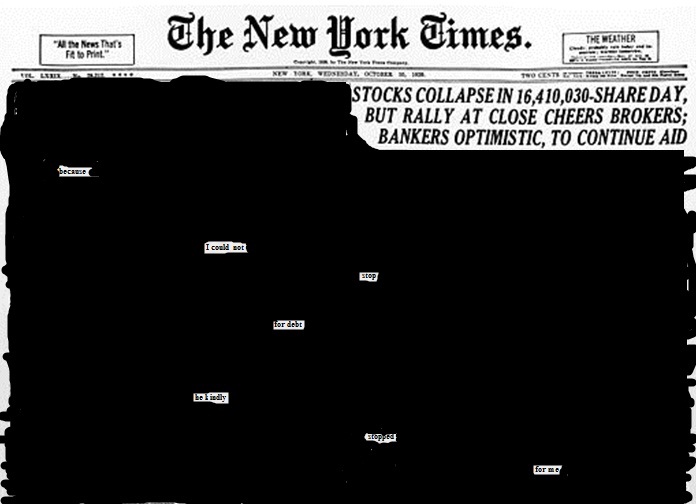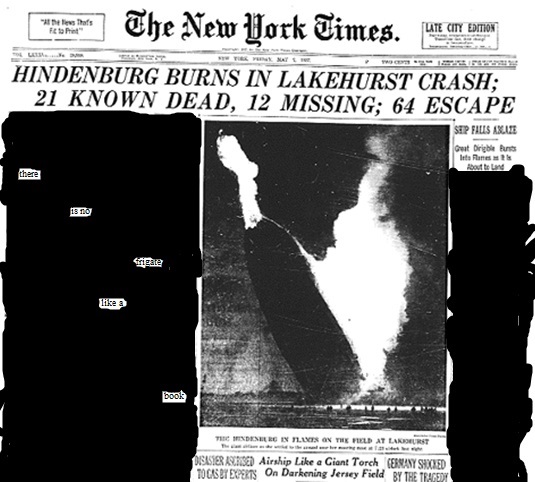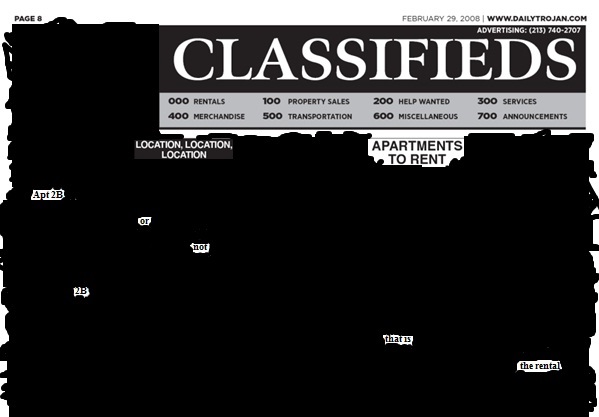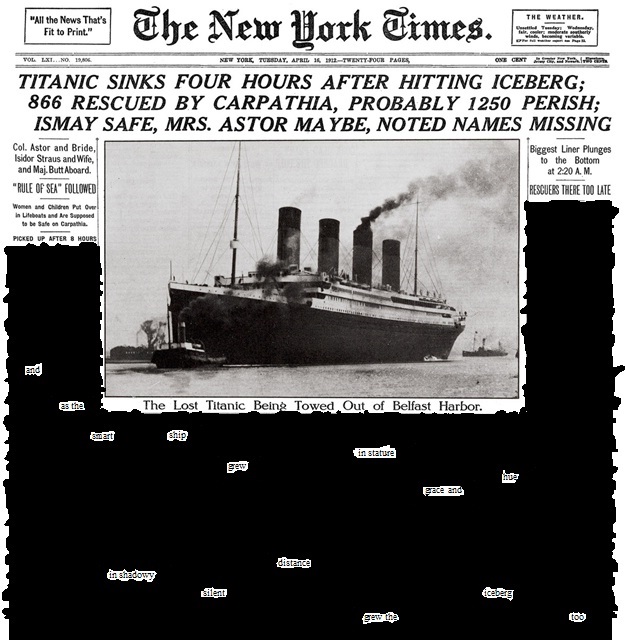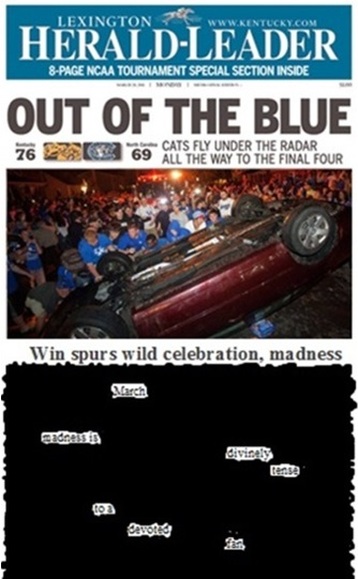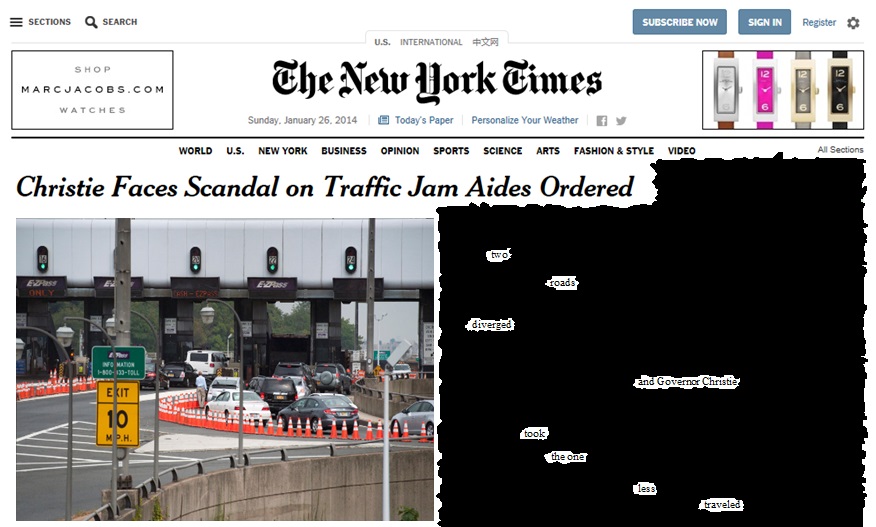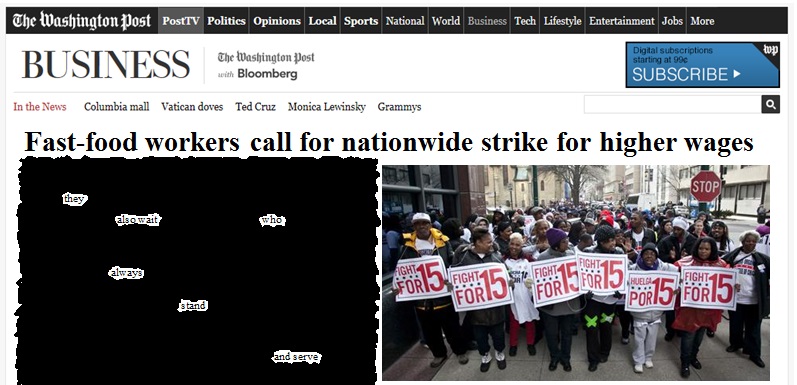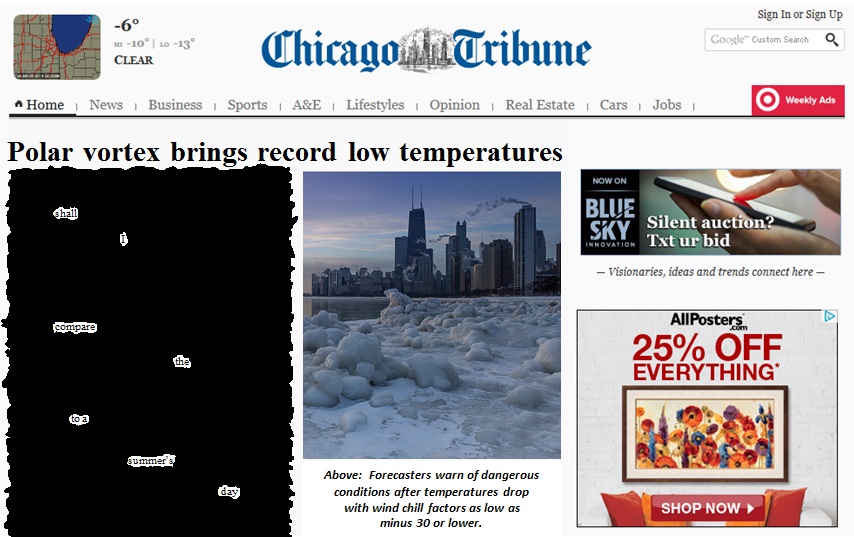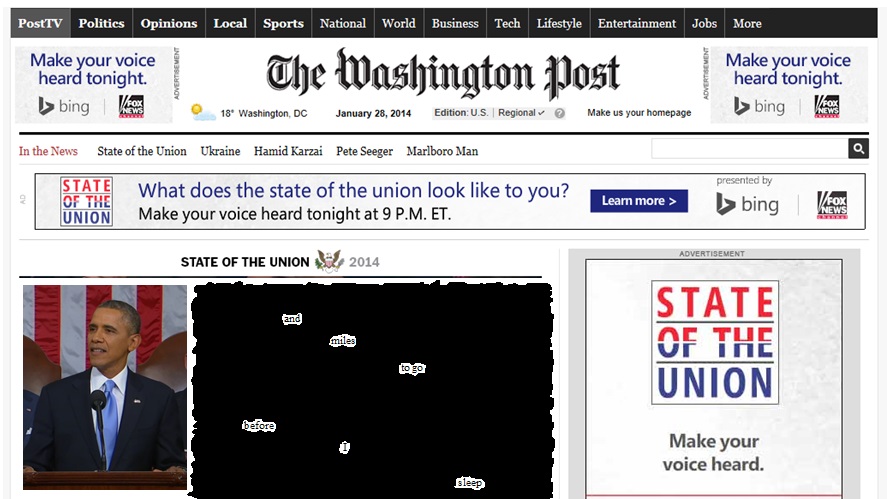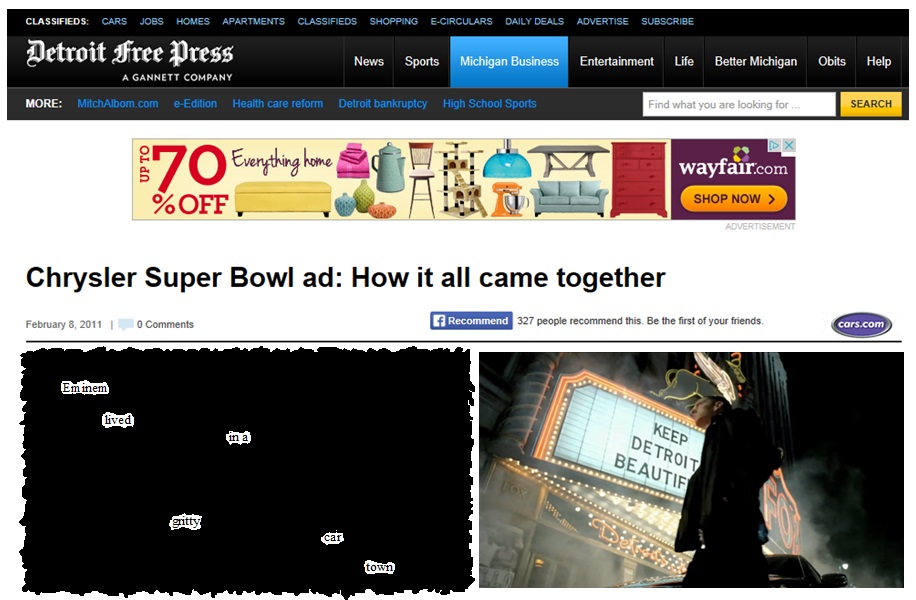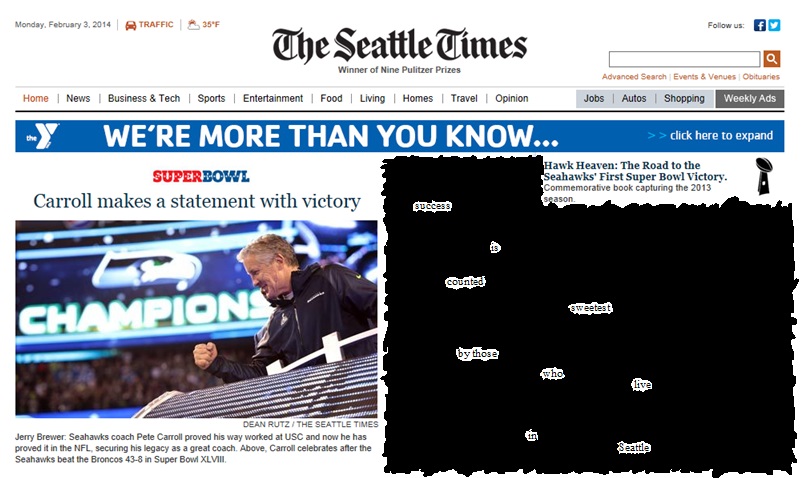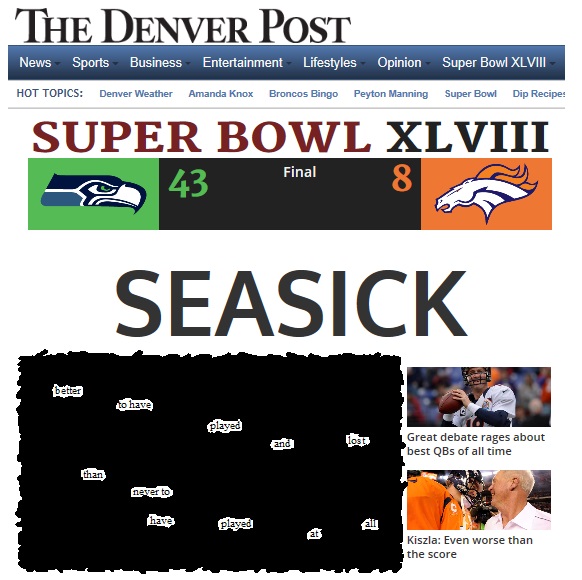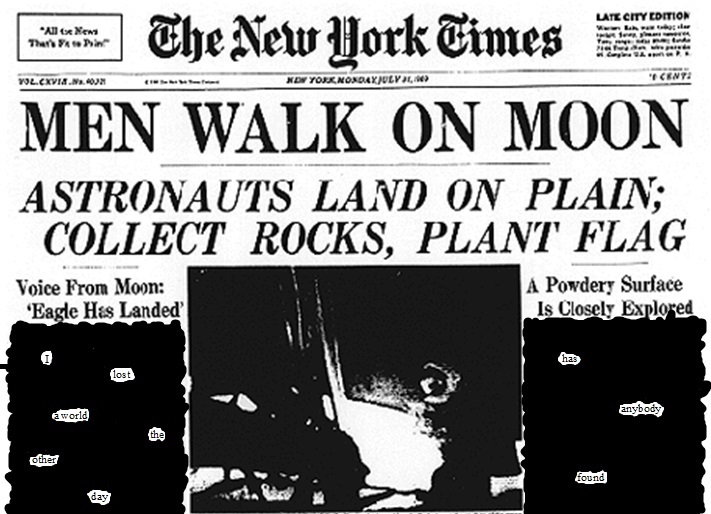BLACKOUT POETRY BLACKOUT POETRY
The Jim Crow Era is morphing into the Jim Crow Eon in Georgia where GOP Klansmen in the state's legislature passed a law to suppress voting in minority communities -- even making it illegal to provide someone in line with food and water.
In tribute to this bigoted legislation, signed into law this week by Georgia's governor, we have created a Blackout Poem (pictured at the right) from an editorial in the Atlanta Journal Constitution: I WAS THIRSTY, YOU GAVE ME DRINK |
B
elow: State legislators in Georgia watch Governor Brian Kemp sign their racist bill into law.
elow: State legislators in Georgia watch Governor Brian Kemp sign their racist bill into law.
AN EMMETT LEE DICKINSON MUSEUM EXCLUSIVE
|
Members of our museum's legal team were able to obtain un-redacted forms from Robert Mueller's court filings about President Trump's former personal attorney Michael Cohen and Trump's former campaign chairman Paul Manafort. They then created a blackout poem from the form by re-redacting the information. Using the page on the left, they re-redacted the page to reveal a quote from Shakespeare: "There is nothing more confining than the prison we don't know we are in."
|
|
Pictured at the right: Rolland Thurlington, an Emmett Lee Dickinson aficionado from Fond du Lac, Wisconsin sent us this blackout poem about Kanye West's meeting with Trump in the White House. He created the poem from an article on the online site for The New Yorker. Thurlington said that our page of blackout poems inspired him to create his own. His poem reads as follows: Kanye's but a walking shadow A poor player that struts and frets His hour in the Oval Office Full of sound and fury Signifying nothing. |
OTHER BLACKOUT POEMS
|
Repeal x 60 -- failed. Then repeal & replace -- failed. Then repeal & replace again -- failed again. Now repeal and delay? More like repeal and recoil.
Right: McConnell said, "If those who are in need of health insurance are going to die, then they had better do it and decrease the surplus population." Below: This blackout poem is a take-off on Emily Dickinson's "Because I could not stop for Death." It reads as follows: "Because I could not stop for death, the GOP repealed healthcare for me. The passage affected just myself and thrity-two million Americans." |
Donald Trump is the first to let the world know that when it comes to women, he is simply irresistible -- and his appeal with the opposite sex grew even stronger yesterday when he advocated punishment for women if abortions were to be made illegal.
|
We have marked the occasion with a Blackout Poem from The Washington Post article at the right. With the poem we have quoted a line from Nathaniel Hawthorne's The Scarlet Letter:
"One token of her shame would but poorly serve to hide another." Below: Donald Trump is simply irresistible to women! We suspect that when he announces how the men who get women pregnant should be punished, his appeal with men will grow too! |
SCROLL DOWN TO READ ABOUT THE HISTORY OF BLACKOUT POEMS
AND TO READ MANY OTHER EXAMPLES.
Did you know that Blackout Poetry was invented by Emmett Lee Dickinson (Emily Dickinson's third cousin, twice removed -- at her request)?
Well, not the kind of Blackout Poetry that many people create today where words in a newspaper are blackened out to leave selected words to create a poem. No, Emmett Lee Dickinson created a different kind of Blackout Poetry -- the kind where a poet drinks a bit too much, blacks out, and then "comes to" later with a poem he envisioned during his black out.
Well, not the kind of Blackout Poetry that many people create today where words in a newspaper are blackened out to leave selected words to create a poem. No, Emmett Lee Dickinson created a different kind of Blackout Poetry -- the kind where a poet drinks a bit too much, blacks out, and then "comes to" later with a poem he envisioned during his black out.
|
That was how Emmett Lee Dickinson wrote the very first Blackout Poem, "The harm of Beers is on him": Dickinson spent an afternoon drinking a few too many corn whiskeys (his favorite libation) at the popular Washerst watering hole, "Meter Here ~ The Bar for Poets." He blacked out, woke up at the brothel run by Abigail Wellwood-Barnwell (known to Washerstians as "Downtown Abbey"), and wrote the poem. His poem, in turn, inspired third cousin Emily to write "The harm of Years in on him."
|
Emmett Lee Dickinson's
|
Dickinson's poem inspired third cousin
|
|
Another Trump Blackout Poem:
There is no debate about Donald J. Trump -- he is a "somebody"! Therefore, we've fashioned a blackout poem about Trump from The Des Moines Register based on Emily Dickinson's poem "I'm Nobody. Who are you?" However, in this case, our poem reads, "I'm Somebody. Who are you? Are you somebody too?"
A BLACKOUT POEM FOR THANKSGIVING
The blackout poem from the "Holiday Dinners" advertisement above includes the first line from a classic poem by Emmett Lee Dickinson (Emily Dickinson's third cousin, twice removed -- at her request): "After Formal Feedings, a great pain comes."
Dickinson's poem inspired his third cousin Emily to write her poem which begins, "A great pain, a formal feeling comes."
Dickinson's poem inspired his third cousin Emily to write her poem which begins, "A great pain, a formal feeling comes."
A BLACKOUT POEM FROM THE BOSTON GLOBE ON 2015's RECORD SNOWFALL
|
We created a Blackout poem using The Boston Globe with the "Piling It On" headline. The poem is from this poem by Emily Dickinson: The sky is low, the clouds are mean, A travelling flake of snow Across a barn or through a rut Debates if it will go. A narrow wind complains all day How some one treated him; Nature, like us, is sometimes caught Without her diadem. Click the image at the left to enlarge. |
A BLACKOUT POEM ON THE SENATE VOTE ON CLIMATE CHANGE
|
We created a Blackout poem from an article on the Senate vote on climate change. The Blackout poem is from this poem by Emily Dickinson:
It can't be "Summer"! That—got through! It's early—yet—for "Spring"! There's that long town of White—to cross-- Before the Blackbirds sing! It can't be "Dying"! It's too Rouge-- The Dead shall go in White-- So Sunset shuts my question down With Cuffs of Chrysolite! |
|
Emily Dickinson was inspired to write her poem after she read this poem by Emmett Lee Dickinson (her third cousin, twice removed -- at her request):
|
It
can’t be “Summer”!
That – man made! It’s hotter – now – than “Spring”! Where’s that long gown of White – that’s gone – When did the Canary sing? It can’t be “Man-ufactured”! It’s a Ruse – The Diehards try to Shock – So the Senate shut the statement down Rebuffed the “Man-made” talk! |
A BLACKOUT POEM FROM THE ADS WEBSITE Re: THEIR 2014 WORD OF THE YEAR
|
We created a Blackout poem from the ADS website's announcement that #blacklivesmatter is their 2014 Word of the Year.
The Blackout poem is from Emily Dickinson: A word is dead When it is said, Some say. I say it just Begins to live That day. Click the image at the left to enlarge. To see the ELD Museum's 2014 Word of the Year, click HERE. |
Pictured below: The most famous newspaper Blackout Poem ever created was from the 1929 edition of The New York Times; it quotes a poem by Emmett Lee Dickinson: "Because I could not stop for debt, he kindly stopped for me."
|
Pictured at the left: The Blackout Poem from The New York Times' coverage of the Hindenburg crash quotes a line from a poem by Emily Dickinson: "The is no frigate like a book.
Pictured below: A Blackout Poem from a classified ad section which reads, "Apt 2B or not 2B that is the rental." (Click images to enlarge.) |
Pictured below: A Blackout Poem from The New York Times' coverage of the Titanic disaster quotes lines from Thomas Hardy’s “The Convergence of the Twain”: "And as the smart ship grew In stature, grace, and hue, In shadowy silent distance grew the Iceberg too." The complete poem is HERE.
|
Pictured at the left: A Blackout Poem from the Lexington Herald-Leader after Kentucky won the NCAA Final Four. The quote is from a poem by Emmett Lee Dickinson: March madness is divinely tense to a devoted fan."
Pictured below: A Blackout Poem from The New York Times' coverage of Hurricane Katrina reads, "Water, water everywhere -- and not a drop to drink." |
|
Pictured at the right: A recent acquisition to hang in the Blackout Poetry gallery of the Emmett Lee Dickinson Museum (above the coin-op Laundromat on Dickinson Boulevard) includes a take-off on a classic poem by Robert Frost; the Blackout Poem reads, "Two roads diverged and Governor Christie took the one less traveled." Additional poems by Emmett Lee Dickinson (Emily Dickinson's third cousin, twice removed -- at her request) about the GW Bridge scandal are HERE. |
|
Pictured at the left: A recent acquisition in the Blackout Poetry gallery of the Emmett Lee Dickinson Museum (above the coin-op Laundromat on Dickinson Boulevard) refers to a line from John Milton: "They also serve who only stand and wait." In this case, the Blackout poem reads," They also wait who always stand and serve." |
|
Pictured at the left: Remember that Super Bowl advertisement that started the Chrysler tagline "Imported from Detroit," and it featured music from Eminem? The Blackout poem on the left from an article in the Detroit Free Press includes the opening line from a poem by Emmett Lee Dickinson that alludes to that ad: "Eminem lived in a gritty car town" -- and Dickinson's poem inspired E. E. Cummings to write "anyone lived in a pretty how town." |
|
Pictured at the right: The Blackout Poem from The Denver Post's Super Bowl coverage alludes to a line of Tennyson's: "better to have played and lost than never to have played at all" (click image to enlarge).
Pictured below: The Blackout Poem from The Seattle Times refers to a poem by Emily Dickinson: "Success is counted sweetest by those who live in Seattle" (click image to enlarge). |
